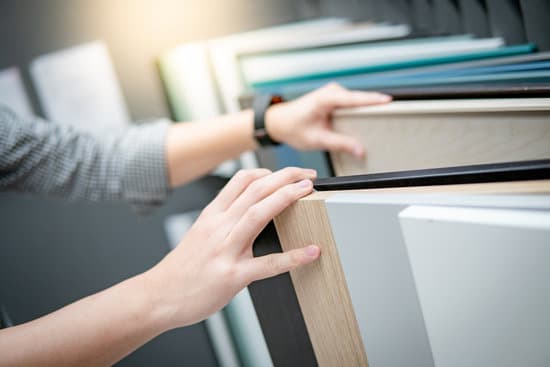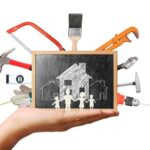Are you wondering which home improvements can be tax deducted? Understanding the ins and outs of tax deductions for home improvements can help you save money while making upgrades to your property. Whether it’s for energy efficiency, medical accessibility, or rental properties, knowing what qualifies for tax deductions is essential for maximizing your savings.
When it comes to eligible home improvements for tax deductions, there are specific criteria that must be met. From energy-efficient upgrades to renovations for rental properties, each category has its own set of rules and requirements that determine whether the expenses are tax deductible. By understanding these guidelines, homeowners can take advantage of potential savings while enhancing their living spaces.
Energy-efficient upgrades offer significant tax benefits and incentives for homeowners. From solar panels to energy-efficient windows and doors, making these upgrades not only lowers utility bills but also provides opportunities for tax deductions. Additionally, modifications made for medical accessibility and renovations done for rental properties also have potential tax benefits that homeowners should consider when planning their improvement projects.
Eligible Home Improvements for Tax Deductions
When it comes to eligible home improvements for tax deductions, it’s important to understand which upgrades and renovations qualify. Generally, home improvements that increase the value of your property or improve its longevity are not tax-deductible. However, there are certain exceptions and specific types of home improvements that can be claimed as deductions on your taxes.
One example of eligible home improvements for tax deductions is any modifications made for medical accessibility purposes. This includes adding wheelchair ramps, handrails, or other modifications that allow individuals with disabilities to move around the home more easily. Another type of deductible improvement is energy-efficient upgrades such as solar panels, geothermal heat pumps, or energy-efficient windows and doors. These upgrades not only benefit the environment but also qualify for tax deductions under certain conditions.
It’s important to note that not all home improvements will automatically qualify for tax deductions. It’s essential to keep thorough documentation and records of the expenses related to these improvements in order to claim them as deductions. Additionally, it may be beneficial to consult with a tax professional to ensure that you maximize your tax deductions for eligible home improvements.
| Eligible Home Improvements | Examples |
|---|---|
| Medical Accessibility Modifications | Wheelchair ramps, handrails |
| Energy-Efficient Upgrades | Solar panels, energy-efficient windows |
Energy-Efficient Upgrades and Tax Deductions
Energy-efficient upgrades not only help you save on your energy bills, but they can also qualify for tax deductions, making them a smart investment for homeowners. The government offers incentives for making environmentally-friendly improvements to your home, encouraging the use of renewable and efficient energy sources. Here are some energy-efficient upgrades which can be tax deducted:
- Solar panels: The installation of solar panels is one of the most common home improvements that can be tax deducted. Homeowners can claim a tax credit for a percentage of the cost of installing solar panels.
- Energy-efficient appliances: Upgrading to Energy Star-rated appliances such as refrigerators, washers, dryers, and HVAC systems can also qualify for tax deductions. These appliances are designed to consume less energy, reducing your utility bills and providing potential tax benefits.
- Insulation: Adding or upgrading insulation in your home not only helps maintain comfortable temperatures but may also qualify for tax deductions. Proper insulation reduces the amount of energy needed to heat or cool your home, making it an eligible expense for potential tax benefits.
By making these energy-efficient upgrades to your home, you not only reduce your carbon footprint and save on energy costs but also potentially benefit from tax incentives. It’s important to keep detailed records and documentation of expenses related to these improvements in order to maximize your potential tax deductions.
Whether you’re looking to make small changes or significant renovations, it’s advisable to consult with a tax professional to ensure you take full advantage of all eligible tax deductions. They can provide guidance on available incentives and help navigate through the complex process of claiming these deductions on your taxes. With proper planning and documentation, you can maximize the financial benefits of making energy-efficient upgrades to your home.
Home Office Expenses and Tax Deductions
Many homeowners, especially those who are self-employed or work remotely, may be wondering which home office expenses can be tax deducted. Deducting home office expenses can help reduce your taxable income and possibly increase your tax refund. Here are some eligible home office expenses for tax deductions:
1. Office supplies and equipment: Items such as computers, printers, furniture, and other necessary supplies for your home office may be eligible for tax deductions.
2. Utilities and maintenance: A portion of your utilities (such as electricity, internet, and phone), rent or mortgage interest, property taxes, and home insurance can be deducted based on the percentage of space in your home used for business.
3. Depreciation: If you own your home and use a part of it exclusively for business purposes, you may be able to deduct depreciation on that portion of your home.
It’s important to keep detailed records and documentation of all these expenses in case the IRS requests verification. This includes keeping receipts for purchases, utility bills, and documentation related to the size of your workspace in relation to the total area of your home.
In addition to having a dedicated workspace in your home, there are specific requirements that must be met in order to qualify for these deductions from the IRS. For example, the space must be used regularly and exclusively for business purposes. Consult with a tax professional or accountant to ensure that you meet all the necessary qualifications for claiming these deductions.
Medical Accessibility Modifications and Tax Deductions
When it comes to making medical accessibility modifications in your home, it’s important to understand which expenses can be tax deductible. For individuals with disabilities or those caring for a disabled individual, certain home improvements can qualify for tax deductions, providing some financial relief for the costs incurred.
One of the most common medical accessibility modifications that may be tax deductible is the installation of ramps or other accessibility features to accommodate a wheelchair. Additionally, widening doorways, installing handrails, and making other modifications to improve accessibility within the home may also be eligible for tax deductions.
It’s important to note that not all medical accessibility modifications will necessarily qualify for tax deductions. It’s advisable to consult with a tax professional or accountant to understand which expenses can be deducted and ensure that you have the necessary documentation and records to support your deduction claims.
In addition to understanding the potential tax benefits of medical accessibility modifications, homeowners should also explore any available local or state incentives or grants that may help offset some of the costs associated with these improvements. By maximizing available resources and taking advantage of eligible tax deductions, homeowners can make their homes more accessible while also benefiting from potential financial savings.
| Eligible Home Improvements | Tax Deduction Potential |
|---|---|
| Wheelchair ramps | Potentially deductible |
| Accessible doorways and handrails | Potential for deduction based on documentation |
Renovations for Rental Properties and Tax Deductions
Renovations for rental properties can often be tax deductible, providing landlords with a financial incentive to make improvements to their investment properties. The Internal Revenue Service (IRS) allows landlords to deduct certain expenses related to the maintenance and renovation of rental properties, which can help offset the cost of these improvements. However, it is important for landlords to understand which home improvements are eligible for tax deductions and ensure that they keep accurate records to support their claims.
Eligible Renovations for Tax Deductions
When it comes to rental properties, renovations that are considered necessary for maintaining or improving the property’s condition can typically be tax deductible. This may include repairs such as fixing a leaky roof, replacing old plumbing or electrical systems, and renovating kitchens or bathrooms. Landlords can usually deduct the costs of materials and labor for these types of renovations from their taxable rental income.
Capital Improvements and Depreciation
In addition to regular maintenance and repairs, landlords may also be able to deduct the cost of capital improvements made to rental properties. These are generally larger-scale renovations that add value to the property, such as adding a new room, installing a new HVAC system, or making structural changes. While these expenses cannot be fully deducted in the year they occur, landlords can depreciate the cost of capital improvements over several years, which can provide long-term tax benefits.
It is important for landlords to carefully document all expenses related to renovations for their rental properties in order to support their tax deductions. This includes keeping receipts for materials and labor, as well as maintaining detailed records of any capital improvements and depreciation schedules. Additionally, consulting with a tax professional who has experience in real estate investments can help landlords maximize their tax deductions while staying in compliance with IRS regulations.
Documentation and Record-Keeping for Tax-Deductible Home Improvements
When it comes to claiming tax deductions for home improvements, proper documentation and record-keeping are crucial. Without adequate documentation, you may not be able to take advantage of the tax benefits that come with eligible home improvements. Here are some key points to keep in mind when it comes to documenting and record-keeping for tax-deductible home improvements.
Receipts and Invoices
One of the most important aspects of documentation for tax-deductible home improvements is keeping all receipts and invoices related to the project. This includes materials purchased, labor costs, and any other expenses incurred during the improvement process. These receipts and invoices will serve as proof of the expenses you’ve incurred, which will be necessary when filing your taxes.
Contractor Information
If you hired a contractor to complete the home improvement project, it’s important to keep detailed records of their information as well. This includes the contractor’s name, address, phone number, and contractor’s license number if applicable. Having this information on hand will help support your claim for tax deductions in case of an audit or review by the IRS.
Before-and-After Documentation
In addition to keeping track of financial documents, it’s also a good idea to document the before-and-after of the home improvement project. Take photographs or videos of the areas being improved before any work begins, and then again after the project is completed. This visual evidence can serve as further proof of the improvements made to your home, which can support your claim for tax deductions.
Proper documentation and record-keeping are essential when it comes to claiming tax deductions for eligible home improvements. By keeping thorough records of all expenses related to the improvement project, you can maximize your potential tax benefits while also ensuring compliance with IRS regulations.
Hiring a Professional to Maximize Tax Deductions
When it comes to maximizing tax deductions for home improvements, hiring a professional could potentially provide you with valuable assistance. Tax laws can be complex and ever-changing, and a tax professional who specializes in real estate and home improvement deductions will have the expertise to help you navigate through the process.
A professional tax advisor can help ensure that you are taking advantage of all eligible deductions for your home improvements, which can ultimately save you money. They can also provide guidance on proper documentation and record-keeping to support your claims for tax deductions. Additionally, a tax professional can offer advice on the most beneficial timing for certain home improvement projects in order to maximize tax benefits.
Furthermore, a tax expert can assess your specific situation and provide personalized advice on which home improvements can be tax deducted based on your individual circumstances. This level of tailored guidance is especially valuable when dealing with more complex situations such as renovations for rental properties or medical accessibility modifications. Overall, hiring a professional ensures that you are making informed decisions when it comes to tax-deductible home improvements.
Conclusion
In conclusion, understanding which home improvements can be tax deducted can significantly impact your financial planning and budgeting. From energy-efficient upgrades to medical accessibility modifications, there are various eligible home improvements that may qualify for tax deductions. It is important to carefully consider these options and take advantage of any potential tax benefits when making improvements to your property.
By keeping thorough documentation and records of all expenses related to the eligible home improvements, you can ensure that you have the necessary proof in case of an audit or review by the IRS. Additionally, hiring a professional such as a tax accountant or consultant can be beneficial in maximizing your tax deductions for home improvements. They can provide valuable insights and guidance on how to navigate the complex tax laws and regulations relating to home improvement deductions.
Ultimately, taking advantage of eligible tax deductions for home improvements can help you save money in the long run while also enhancing the value and functionality of your property. It is essential to stay informed about current tax laws and consult with a professional to ensure that you are maximizing your potential deductions while remaining compliant with all relevant regulations.
By doing so, you can make informed decisions about which home improvements to prioritize and potentially save on costs through tax benefits.
Frequently Asked Questions
What Does the IRS Consider Home Improvements?
The IRS considers home improvements as significant upgrades that increase the value of your home, such as adding a new room, renovating a kitchen or bathroom, or installing a new roof. These improvements are not considered regular maintenance.
Are Renovation Costs Tax Deductible?
Renovation costs are generally not tax-deductible, but they can help reduce your tax liability when you sell your home. The cost of renovations can be added to the cost basis of your home, reducing the amount of capital gains when you sell.
Are Improvements to Home Office Tax Deductible?
Improvements to a home office may be tax-deductible if the space is used exclusively for business purposes. This includes expenses such as painting or repairing the office, but it’s important to consult with a tax professional to ensure compliance with IRS guidelines.

I’m thrilled to have you here as a part of the Remodeling Top community. This is where my journey as an architect and remodeling enthusiast intersects with your passion for transforming houses into dream homes.





